Author Rudrangshu Mukherjee probes into why the two visionaries shifted from being friends to foes in his latest title, Nehru & Bose: Parallel Lives
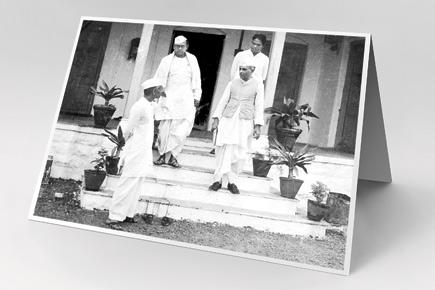
Mumbai Guide, Books, Nehru & Bose: Parallel Lives by Rudrangshu Mukherjee, Penguin Books India, Rudrangshu Mukherjee, Subhash Chandra Bose, Pandit Jawaharlal Nehru, Mahatma Gandhi, Gandhiji
Future on Bose-Nehru’s shoulders
The bonds between the two had grown stronger and they could see themselves as confrères in the left wing of the Congress. The British government in India noted this; the home secretary observed on 21 February 1929: ‘If the experience of the Calcutta Congress is any guide, the decision of future policy appears to be almost entirely with the younger men notably Pandit Jawaharlal Nehru and Babu Subhas Chandra Bose, and on their intentions and activities future developments may be expected largely to depend.’
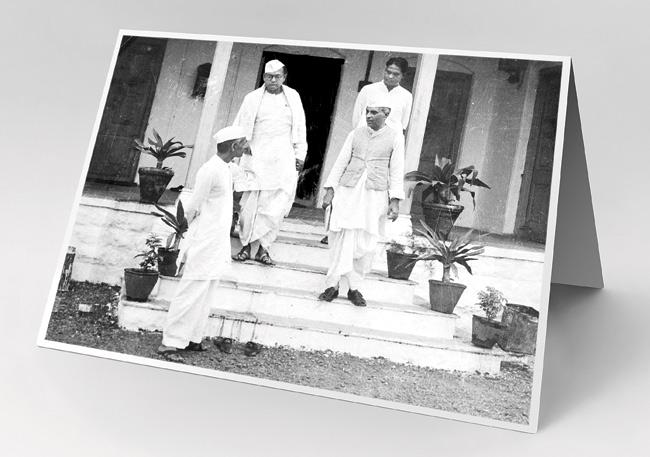
An undated archival image of Netaji Bose (top left) and Pandit Nehru (standing on the steps in a jacket)
ADVERTISEMENT
Signing off with love
Letters from Subhas to Jawaharlal from this phase of their lives have two features worth noting. For one thing, many of them have personal queries. For example, in one letter he asks, ‘Do you hear from Indu regularly? How is she? It must be very trying for her being all alone in Switzerland.’ The other aspect is even more revealing. In the letter he wrote on 30 June 1936, his sign-off to Jawaharlal is not merely the previously used and more conventional ‘Yours affectionately’, but the word ‘Love’ is added. This continues till February 1939, when the word ‘Love’ at the end disappears. There were genuine expressions of camaraderie between the two. On 19 October 1938, he told Jawaharlal, ‘You cannot imagine how I have missed you all these months.’
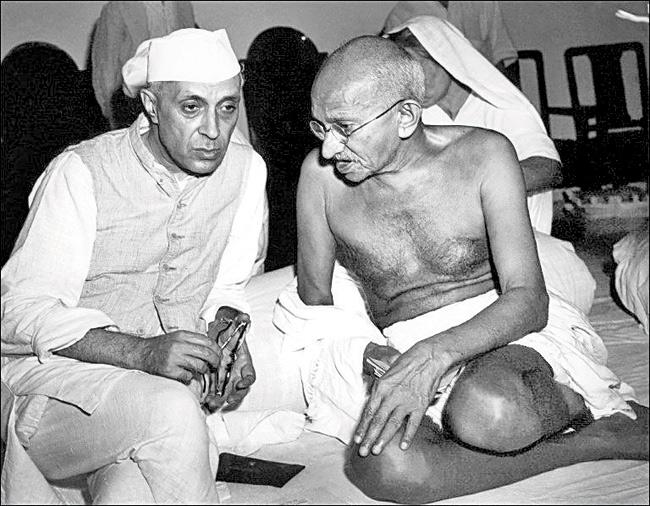
Photo from 1946 of Mahatma Gandhi (right) talking with Jawaharlal Nehru (left)
Why Subhas Bose became bitter
While Subhas was trying to sort out his differences with Gandhi, he wrote a long letter — twenty-seven typed pages — to Jawaharlal at the end of March. This missive is crucial for understanding how fast their relationship was deteriorating. In the first paragraph of this letter, Subhas wrote, ‘I find that for some time past you have developed tremendous dislike for me. I say this because I find that you take up enthusiastically every possible point against me; what could be said in my favour you ignore.’ What followed in the rest of the letter were illustrations of this point. Subhas said that since he had come out of prison in 1937, he had treated Jawaharlal with ‘the utmost regard and consideration, in private life and in public’. He had looked upon Jawaharlal as ‘politically an elder brother and leader and have often sought your advice’. But Jawaharlal’s response to such advice-seeking had been ‘vague and non-committal’. The letter went on to become a tirade against Jawaharlal, picking on various recent incidents or statements in the course of which Subhas felt he had been treated badly or misrepresented or ignored by his political elder brother. The tone was distinctly personal and bitter.
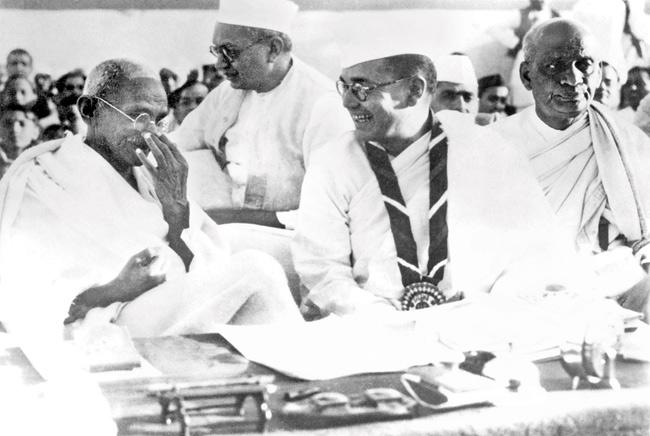
Indian leader Mahatma Gandhi speaks with Netaji Subhas Chandra Bose, president of the Indian National Congress, in Haripura, during a political meeting. The two men were the most prominent leaders of the Indian Independence movement against the British rule. Pics/AFP
Nehru’s rebuttal
The temperamental differences between Subhas and Jawaharlal was nowhere better revealed than in the two books they wrote during 1935–36 — The Indian Struggle and An Autobiography. One strident, sure and assertive; the other low-key, understated and perhaps more gracious. Subhas’s stridency occasionally appeared to Jawaharlal to be tasteless. Subhas’s campaign to get himself re-elected he could not accept from his heart. He informed Subhas of this in the most gracious of terms: ‘I felt all along that you were far too keen on re-election. Politically there was nothing wrong in it and you were perfectly entitled to desire re-election and to work for it. But it did distress me for I felt that you had a big enough position to be above this kind of thing.’
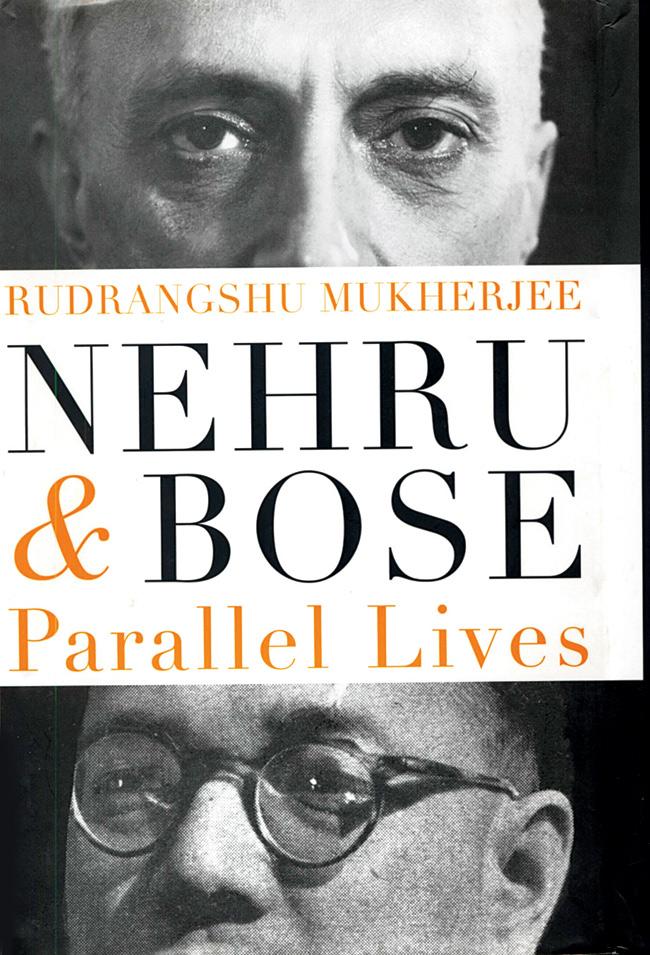
Excerpted with permission from Nehru & Bose: Parallel Lives by Rudrangshu Mukherjee (Penguin Books India, Rs 599) Available at leading bookstores.
The broken friendship
In the immediate aftermath of Tripuri and while he was in the midst of his intense exchange of letters and telegrams with Gandhi, Subhas had written to one of his nephews, ‘[N]obody has done more harm to me personally, and to our cause in this crisis, than Pandit Nehru. If he had been with us, we would have had a majority. Even his neutrality would have probably given us a majority. But he was with the Old Guard at Tripuri. His open propaganda against me also has done me more harm than the activities of the twelve stalwarts.’
Loyalty to Gandhi
It was Jawaharlal’s personal devotion to Gandhi that Subhas did not understand or did not appreciate. Subhas did not allow any sentiment or personal feelings to come between him and his aspiration to make his country free. Even the news of his mother’s death did not make him stop his work when he was preparing for battle in Southeast Asia.He did not hesitate to leave behind his wife and his daughter in Europe knowing that he may not see them ever again. The personal was secondary to him: the political was paramount.Thus, it was exasperating for Subhas to see again and again Jawaharlal differing with Gandhi but pulling back at the last moment from an open break. This made him lash out at Jawaharlal on occasion. Subhas believed that he and Jawaharlal could make history together. But Jawaharlal could not see his destiny without Gandhi. This was the limiting point of their relationship.
 Subscribe today by clicking the link and stay updated with the latest news!" Click here!
Subscribe today by clicking the link and stay updated with the latest news!" Click here!







